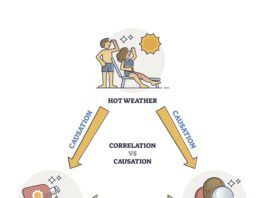The Ultimate Guide to Whole Grains
Eating more minimally processed whole grains and whole-grain foods is a good choice for your health. Beyond oatmeal and brown rice, there’s a wide...
The Facts About Natural Sugar Substitutes
Nutrition research is rarely unequivocal, but experts are in agreement on at least one fact: added sugars are bad for our health. Sugar substitutes...
Protein: Your Comprehensive Guide
Protein is getting a lot of attention these days. High-protein diets are all the rage, protein supplement sales are booming, and protein is being...
DASH Diet: Preventing Heart Attacks and Strokes
Heart disease remains the number one cause of death in the U.S. The DASH eating plan (Dietary Approaches to Stop Hypertension) has been proven...
Lose Weight…and Keep it Off
Weight is about more than appearance. Being overweight and obese is associated with a lower quality of life (especially as we age) and higher...
Risks of an Expanding Waistline
Forty-four percent of U.S. adults 50 and over have metabolic syndrome, a cluster of interrelated health issues that increases risk for heart attack, stroke,...
Eat Better, Shop Better, with this Simple Plan
Would you like to permanently reduce time spent shopping and preparing food, while improving your diet and health? The step-by-step guide that follows will...
Preserving Brain Health Through a Heart-Healthy Diet
We have all forgotten why we walked into a room or had trouble recalling a common word, and the frequency of these lapses almost...
Swaps for Heart and Brain Health
Simple swaps—like choosing foods with unsaturated fats to replace those with saturated, unprocessed or reduced sodium foods over typical high-sodium processed products, fruits instead...
Alcohol’s Overhyped Health Benefits
Some people feel a drink at the end of a tough day helps them unwind and relax. Others may see a daily glass of...



































